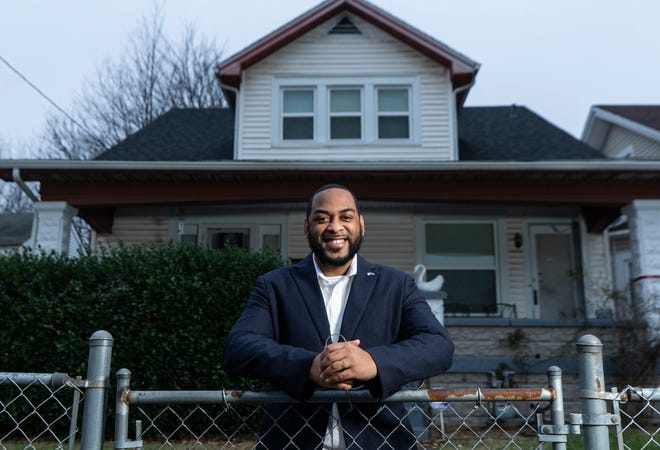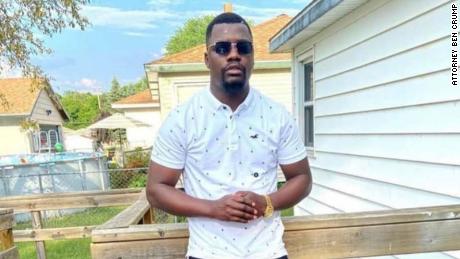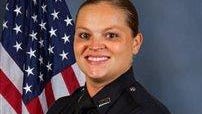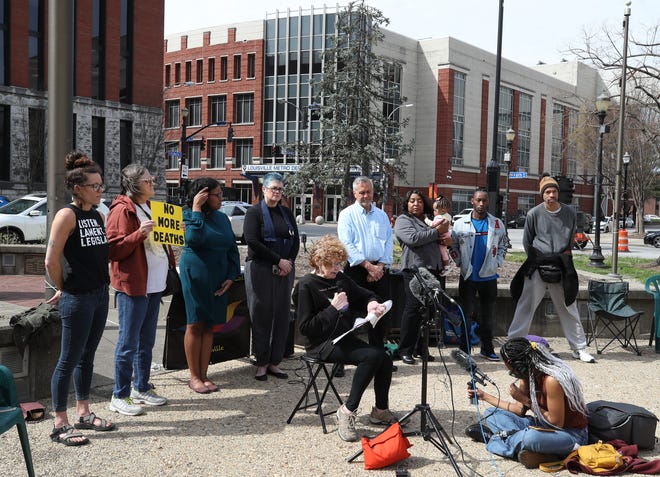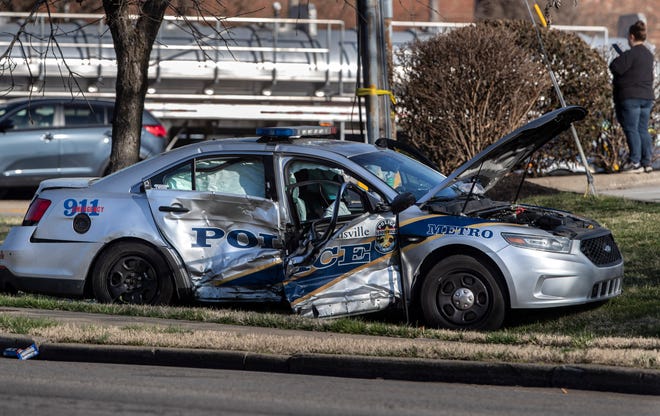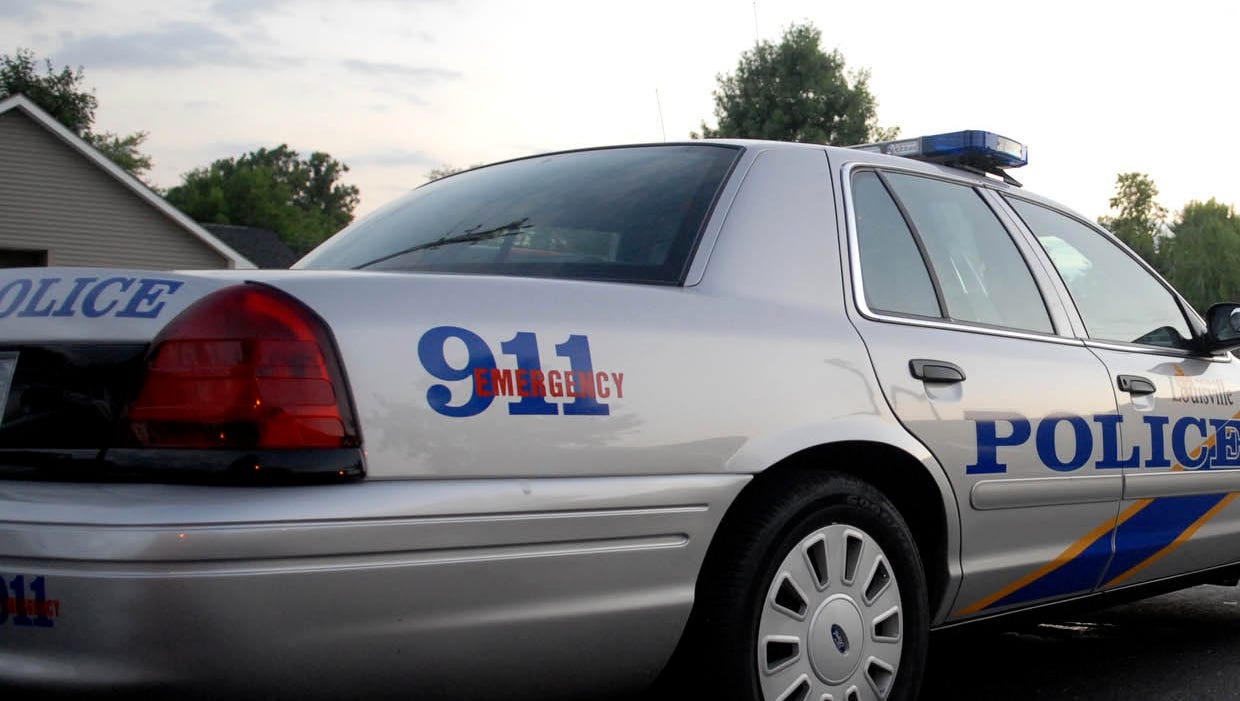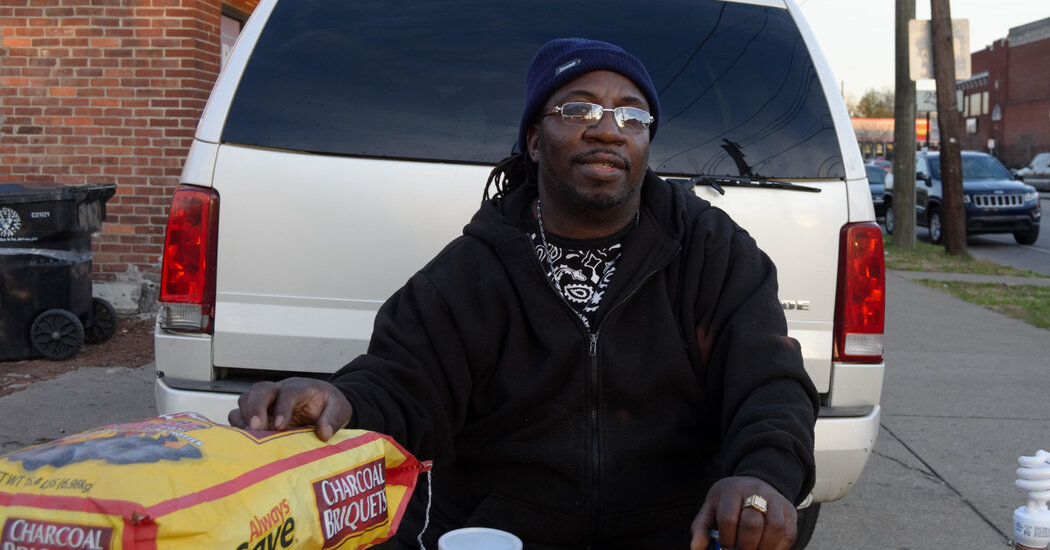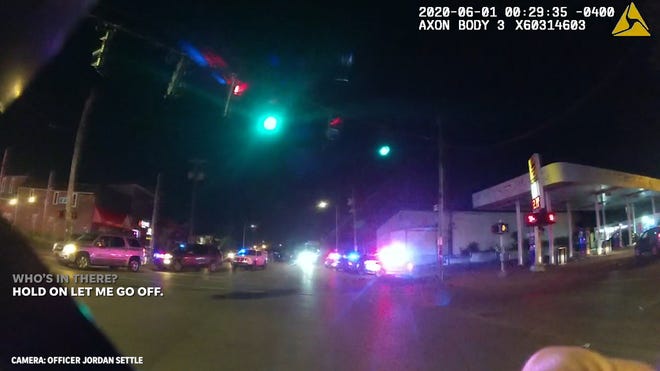The shooting of Patrick Lyoya in Grand Rapids, Michigan, earlier this month is the latest high-profile police shooting under scrutiny. On Wednesday, Grand Rapids police released several video clips, which show Lyoya's entire encounter with a police officer after a traffic stop, including the moment the officer fatally shot the 26-year-old Black man.Several hundred people protested after the video was released, with many chanting, "Justice for Patrick." Lyoya's parents, Dorcas and Peter, and his brother Thomas wept at a news conference Thursday calling for the prosecution of the officer involved in the incident and demanding justice. While details of the case -- and the expected fallout -- are still unfolding, Lyoya's death not only puts the attention back on how a traffic stop can become fatal but reopens years-long frustration with how police interact with Black people. Killings at the hands of law enforcement continue to leave families devastated and social justice advocates calling for reform and policy changes. On Tuesday, three former Minneapolis police officers rejected a plea deal from prosecutors as they await trial for charges in George Floyd's death. And last week, prosecutors declined to file charges against the Minneapolis police officer who fatally shot Amir Locke or any other officers involved in the no-knock warrant service that led to the 22-year-old Black man's death in early February. Although Minnesota juries found former police officer Derek Chauvin guilty of murder in Floyd's death and Kim Potter guilty of manslaughter for shooting Daunte Wright, experts note how rare it is that police officers involved in high-profile, and sometimes deadly, on-duty incidents ever face criminal charges or are convicted."It's rare because the juries are very reluctant to second guess and judge the actions of on-duty police officers in violent street encounters," Philip Matthew Stinson, a criminal justice professor at Bowling Green State University, told CNN previously.Here is a look at some of the most recent high-profile and controversial police shootings and the outcomes: Patrick Lyoya, 26When: April 4, 2022Where: Grand Rapids, MichiganWhat happened: The incident began just after 8 a.m. ET on April 4 when police say they pulled over a vehicle for improper registration. The driver, now known to be Lyoya, got out of the vehicle and at some point, ran, Grand Rapids Police said. Body camera footage showed the officer chasing and tackling Lyoya, resulting in a minutes-long struggle.The officer attempted to tase Lyoya at least twice, according to the police chief, but failed to make contact as Lyoya put his hands on the Taser. At that point, the officer's body camera was accidentally deactivated but cell phone video shows the fatal shot to the head, which can also be heard in video from a home surveillance camera. What's next: Michigan State Police said once the investigation is completed, the evidence will be turned over to the county prosecutor who will decide on charges. The officer's name will be released if charges are filed.Kent County Prosecuting Attorney Christopher Becker asked for patience from the public. "While the videos released today are an important piece of evidence, they are not all the evidence... By law, we are required to review all available evidence before we consider whether charges should be filed, and if so, what appropriate charges should be," he said in a statement Wednesday. A death certificate with the cause and manner of Lyoya's death has been prepared but will not be completed until the toxicology and tissue test results have been received from a contracted laboratory, Kent County Chief Medical Examiner Dr. Stephen D. Cohle said in a Wednesday statement, adding his office has requested the results be expedited. Amir Locke, 22When: February 2, 2022 Where: Minneapolis, Minnesota What happened: Minneapolis police were executing a no-knock search warrant linked to a homicide investigation in neighboring St. Paul, when a SWAT officer shot and killed Locke, who appeared to be asleep on a couch when officers came in. Locke wasn't named in the warrant; Locke's cousin was. City officials didn't release a lot of information in the days after an officer shot Locke, other than 14 seconds of video that they said showed Locke with the gun. The video shows officers using a key to open the apartment's door as officers shout, "Police! Search warrant!" Other officers yelled, "Hands! Hands! Hands!" and "Get on the f****ng ground!" as they approach Locke, who was sleeping on the couch and wrapped in blankets. One officer kicks the back of the couch, waking up Locke. He begins to sit up with his gun in his hand as three shots in the home can be heard by officers. The outcomes: Mark Hanneman -- the Minneapolis SWAT officer responsible for the fatal shot -- was placed on administrative leave but returned to active duty on February 28. Last week, CNN reported prosecutors will not file any charges against Hanneman and any of the other officers involved in the shooting due to insufficient admissible evidence. Following Locke's death, the Minneapolis mayor's office announced the police department would be prohibited from executing no-knock search warrants starting April 8.Daunte Wright, 20When: April 11, 2021 Where: Brooklyn Center, Minnesota What happened: The young father was pulled over by police for an expired tag and an illegal air freshener. During the stop, officers learned he had an outstanding warrant and attempted to arrest him, but Wright pulled away and tried to drive off. As video of the incident shows, Officer Kim Potter yelled, "Taser" repeatedly before she shot Wright with her handgun. She then said, "Holy sh*t! I just shot him!" She added: "I grabbed the wrong f**king gun, and I shot him." The shooting led to days of unrest in suburban Brooklyn Center after a tumultuous year of coast-to-coast protests over police brutality and how officers interact with Black people. The outcome: In December, Potter was found guilty of first and second-degree manslaughter in Wright's death. CNN reported in February that she was sentenced to two years in prison, far less than the seven years and two months prosecutors requested. George Floyd, 46When: May 25, 2020 Where: Minneapolis, Minnesota What happened: Minneapolis Police responded to a report of a "forgery in progress" outside of a Cup Foods store where Floyd was accused of passing a counterfeit $20. Officers approached Floyd's car, yanked him from the vehicle, handcuffed him and began to struggle with him in front of a squad car. Video camera footage showed one officer -- in an effort to restrain Floyd -- knelt on his neck for over nine minutes. Floyd pleaded with officers to release him saying, "I can't breathe," and repeatedly calling out for his mother. After several minutes, he was unresponsive. The outcomes: The Minnesota governor issued an executive order activating the national guard amidst the protests following Floyd's death. Protests then spread nationwide in the summer of 2020 as #BlackLivesMatter resurged in popularity on social media. Derek Chauvin -- the officer who knelt on Floyd's neck -- was convicted of second-degree unintentional murder, third-degree murder and second-degree manslaughter for killing Floyd. Chauvin faces 22 years in prison. In February, three other officers were found guilty of violating Floyd's civil rights. CNN reported Tuesday that they are set to stand trial in mid-June for their involvement in Floyd's death. They have all pleaded not guilty. Ronald Greene, 49When: May 10, 2019 Where: Baton Rouge, Louisiana What happened: Louisiana State Police (LSP) engaged in a vehicle pursuit of Ronald Greene after attempting to pull him over for an unspecified traffic violation. LSP reported that the pursuit ended with Greene crashing his car into a tree.Two years later, body camera footage of the incident was released that showed state troopers repeatedly tasing, beating and violently dragging Greene. The family has filed a lawsuit, accusing the agency of trying to cover up how Greene died. Greene's family said they were initially told that he died in a car crash, but forensics examiners later eliminated the car crash as being a reason for his cause of death.The autopsy, prepared by the Union Parish Coroner's Office, states in its opinion section that lacerations of Greene's head were "inconsistent with motor vehicle collision injury and most consistent with multiple impacts from a blunt object."What's next: A special committee has been investigating Greene's case since 2019. Last May, two of the state troopers involved in Greene's death were reprimanded for their actions, specifically for violating body camera procedures. Last week, the local Louisiana district attorney with jurisdiction over the town where Greene died told state lawmakers he plans to convene a special grand jury and pursue criminal charges against the troopers involved in the Black motorist's death.There have been no arrests or indictments of any of the officers involved. Meanwhile, the former head of the LSP on Thursday failed to appear at an appeal hearing related to the case.Breonna Taylor, 26When: March 13, 2020 Where: Louisville, Kentucky What happened: A Jefferson County circuit judge issued five search warrants in pursuit of Taylor's ex-boyfriend, convicted of drug-related crimes. One of those warrants was for Taylor's apartment, and Louisville Metro Police Department executed it early on the morning on March 13. Police announced themselves and battered down the front door while Taylor and her boyfriend, Kenneth Walker, were in bed. Thinking they were intruders, Walker fired one shot at officers with a gun he legally owned. Officers then responded with heavy fire, fatally shooting Taylor during the raid. The outcomes: Protests erupted in Louisville shortly after Taylor's death. The case started to gain more national attention following the murder of Floyd in Minneapolis. Her death -- along with Floyd's -- sparked a racial reckoning in the US when demonstrators across the country demanded an end to discriminatory policing practices and inspired more conversations about police brutality against Black women. The city of Louisville agreed to pay Taylor's family a $12 million settlement for their wrongful death lawsuit, the highest settlement ever paid by the city, according to a spokeswoman from the Louisville mayor's office. Brett Hankinson -- one of the officers involved in the raid -- was the only officer charged in connection with the shooting. He was acquitted on three counts of felony wanton endangerment in connection with the raid.David McAtee, 53When: June 1, 2020 Where: Louisville, Kentucky What happened: During a protest following the death of Taylor and Floyd, Louisville police and the Kentucky National Guard were sent to disperse a large crowd of demonstrators around midnight in front of a BBQ stand McAtee owned. Officers began firing pepper balls into the crowd, one of which hit McAtee's niece, McAtee's nephew told CNN affiliate WAVE. Louisville Police released a video where McAtee appears to grab his niece and fire shots at officers. Louisville Police and the National Guard then took cover and fired back, killing McAtee, according to the former police chief. The outcomes: One former police officer has been indicted for unreasonable force against an individual during the protest that lead to McAtee's death. McAtee's family also filed a wrongful death lawsuit against 10 LMPD officers and 10 members of the Kentucky National Guard, accusing them of assault and battery, excessive use of force and negligence among other charges. Atatiana Jefferson, 28When: October 12, 2019 Where: Fort Worth, TexasWhat happened: Overnight on October 12, Fort Worth officers responded to a call from a concerned neighbor who noticed the front door was left open at Jefferson's home. Jefferson was babysitting her nephew for her sister, who was recovering from heart surgery, when two Fort Worth police officers arrived at the home without knocking. Police reports say Jefferson heard a noise outside, approached the window and pulled out her gun. Body camera footage shows one officer demanding through the window for Jefferson to show her hands before opening fire through the window, killing her in front of her nephew. The outcomes: In December 2019, a Texas grand jury indicted former Fort Worth officer Aaron Dean for Jefferson's death. The Fort Worth Telegram previously reported that Dean pleaded not guilty and was released on bond in October 2019, with a trial scheduled for this May. Jefferson's father filed a wrongful death lawsuit against the city of Fort Worth and Dean. Jefferson's sister filed a separate wrongful death lawsuit against the city of Fort Worth, Dean and Fort Worth's former police chief. Elijah McClain, 23When: August 24, 2019 Where: Aurora, Colorado What happened: Elijah McClain was walking home from a convenience store when he was confronted by three officers in Aurora, Colorado in response to a 911 caller reporting a suspicious person wearing a ski mask. McClain "resisted contact" and a struggle ensued, according to a news release from police.McClain was wrestled to the ground, according to a letter from the Adams County District Attorney, and an officer proceeded to place him in a carotid hold, restricting blood flow to his brain. When paramedics arrived, they administered McClain ketamine, a powerful anesthetic. He suffered a heart attack en route to the hospital and was declared brain dead three days later. The outcomes: Last year, the city agreed to pay the McClain family $15 million to settle the civil rights lawsuit the family filed after his death. A Colorado grand jury indicted three police officers and two paramedics in September each on manslaughter and criminally negligent homicide, among other charges as part of a 32-count indictment. Colorado Attorney General Phil Weiser opened the investigation after a viral petition advocated for the investigation and the Adams County District Attorney declined to bring charges against the officers. The Colorado Attorney General's Office launched a 14-month investigation into the Aurora police and fire departments. The investigation found the police department had a pattern of practicing racially biased policing and excessive force and had failed to record legally required information when interacting with the community.In November, the city and the state of Colorado reached an agreement on the terms of a consent decree to resolve issues with the Aurora Police Department and Aurora Fire Rescue that were identified in a September "Patterns and Practices" report.The consent decree covers four areas identified in the Attorney General's report: Racially Biased Policing, Use of Force, Documentation of Stops, and Ketamine and Other Chemical Restraints.CNN's Omar Jimenez, Alta Spells, Nick Valencia and Jade Gordon contributed to this report.

